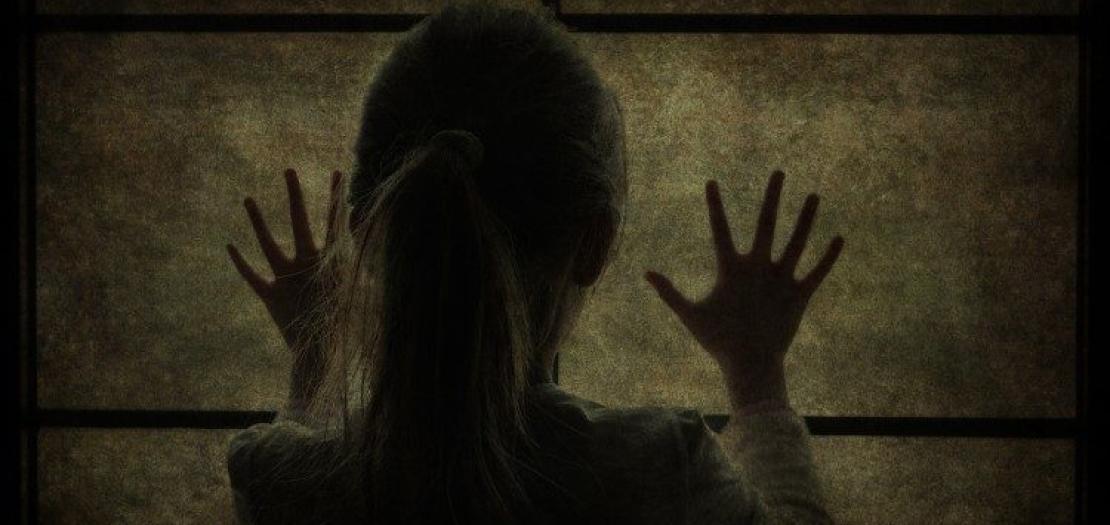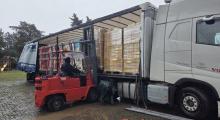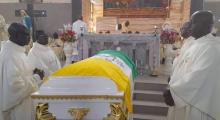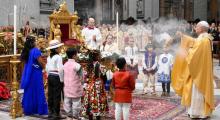Issued by the Catholic Center for Studies and Media - Jordan. Editor-in-chief Fr. Rif'at Bader - موقع أبونا abouna.org

Investigations have revealed that traffickers are increasingly posing as missionaries or pilgrims to deceive authorities and avoid detection at international borders.
According to a report by the Vatican’s Fides News Agency, this emerging tactic involves victims and traffickers disguising themselves as Christian missionaries or volunteers engaged in religious activities abroad.
Police operations, supported by wiretaps and coordinated investigations, have uncovered several cases using this “religious cover.”
One such case involved three Filipino women—aged 23, 25, and 50—attempting to board a flight to Singapore with a stopover in Thailand.
They claimed to be “missionaries,” “volunteers belonging to the Catholic Church, for missionary work in Thailand.” However, authorities flagged inconsistencies in their documents.
Upon further interrogation, it was revealed that the oldest woman, who claimed to be a “preacher,” was actually an organizer of a human trafficking operation.
The two younger women, according to the police, had been lured with the promise of “a teaching job,” but had unknowingly fallen into a criminal network involved in sex trafficking.
Police described a method where “a regular traveler, acting as a smuggler, accompanies groups of passengers under false pretenses, who become victims of trafficking.”
Law enforcement agencies across Southeast Asia—including the Philippines, Indonesia, Malaysia, Thailand, and Cambodia—have intensified joint operations to combat these networks.
Arrests have been made targeting those smuggling victims under the guise of religious travel.
The Philippine Bureau of Immigration, in its end-of-2024 report, documented 998 cases of human trafficking.
The agency highlighted that schemes often include “fake pilgrimages, arranged marriages, and surrogacy,” and noted that many victims are targeted through social media.
Once recruited, victims are frequently forced into “slave labor in the so-called ‘scam cities’ in Thailand, Cambodia, and Myanmar.”
In the Philippines, the Catholic Foundation PREDA (People’s Recovery, Empowerment, and Development Assistance), founded by Irish missionary Father Shay Cullen, has long denounced trafficking schemes that exploit young women.
According to PREDA, victims “were lured by fake, well-paid job offers and transported to Burma, where they faced threats and abuse and were forced to work in slave-like conditions.”
The Philippine Interfaith Movement Against Human Trafficking (PIMAHT), composed of leaders from Christian, Muslim, and Buddhist communities, praised the government’s crackdown and pledged continued collaboration to prevent “child trafficking and sexual exploitation.”
Father Bryand Restituto, Assistant to the Secretary General of the Catholic Bishops’ Conference of the Philippines, strongly condemned these deceptive practices.
“We strongly condemn individuals and trafficking networks that exploit vulnerable populations and use language, clothing, and presumed religious practices to commit criminal acts," he said.
In Thailand, Sister Marie Agnes Buasap of the Hospitaller Sisters of Saint Paul of Chartres and coordinator of the Talitha Kum Thailand network, is among those leading anti-trafficking efforts.
Talitha Kum promotes awareness among youth, families, and educators, and supports the reintegration of survivors.






